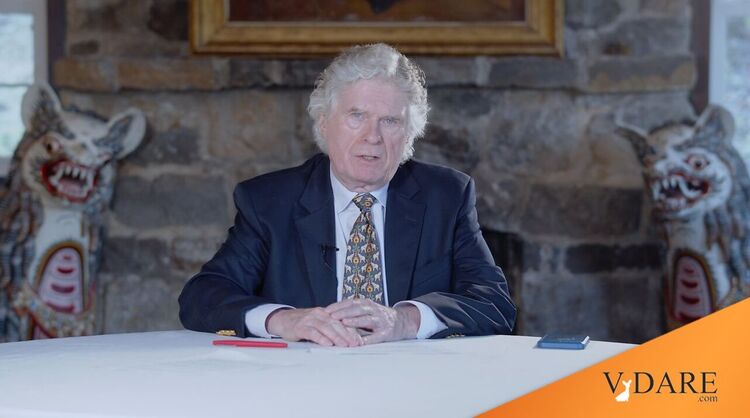In the 20th century,
Detroit, Mich., symbolized American industrial might.
Today it symbolizes the offshored economy.
Detroit's population has declined by half. A quarter of
the city—35 square miles—is
desolate
with
only a few houses still standing on
largely abandoned streets. If the local government can
get the money from Washington, urban planners are going
to shrink the city and establish rural areas or green
zones where neighborhoods used to be.
President Obama and economists provide platitudes about
recovery. But how does an economy recover when its
economic leaders have spent more than a decade moving
high productivity, high value-added middle class jobs
offshore along with the Gross Domestic Product
associated with them?
Some very discouraging reports have been issued this
month from the Bureau of Labor Statistics. There have
been record declines in both jobs and hours worked. At
the end of last year, the U.S. economy had fewer jobs
than at the end of 1997, twelve years ago. Hours worked
at the end of last year were less than at the end of
1995, fourteen years ago.
The average workweek is falling and currently stands at
33.1 hours for non-supervisory workers.
In a major problem for economic theory, labor
productivity or output per man hour and labor
compensation have diverged markedly over the last
decade. Wages are not rising with productivity. Perhaps
the explanation lies in the productivity data. Susan
Houseman found that U.S. labor productivity statistics
might actually be reflecting the low wages paid to
offshored labor. An American company with production in
the U.S. and China, for example, produces aggregate
results in labor output and labor compensation. The
productivity statistics thus measure the labor
productivity of global corporations, not that of U.S.
labor.
Charles McMillion
has pointed out that unit labor costs actually fell
during 2009, but that non-labor costs have been rising
throughout the decade. The rise in non-labor costs
perhaps reflects the decline in the dollar's foreign
exchange value and the increased dependence on imported
factors of production.
Economists and policymakers tend to blame auto
management and unions for Detroit's fall. However,
American manufacturing has declined across the board.
Evergreen Solar recently announced that it is shifting
its production of solar fabrication and assembly from
Massachusetts to China.
A
U.S. Department of Commerce study
of the precision machine tool industry
has found that the U.S. comes in last.
The U.S. industry has a shrinking market share and the
smallest increase in export value. The Commerce
Department surveyed American end-users of precision
machine tools and found that imports accounted for 70
percent of purchases. Some U.S. distributors of
precision machine tools do not even carry U.S. brands.
The financial economy which was to replace the
industrial economy is nowhere in sight. The U.S. has
only five banks in the world's top 50 by size of assets.
The largest U.S. bank, JPMorgan Chase ranks seventh.
Germany has seven banks in the top 50, and the United
Kingdom and France each have six. Japan and China each
have five banks in the top 50, and together the small
countries of Switzerland and the Netherlands have six
with combined assets $1.185 trillion more than the five
largest U.S. banks.
Moreover, after the
derivative fraud
perpetrated on the world's banks by the U.S. investment
banks, there is no prospect of any country trusting
American financial leadership.
The American economic and political leadership has used
its power to serve its own interests at the expense of
the American people and their economic prospects. By
enriching themselves in the short-run,
banksters and politicians
have driven the
U.S. economy into the ground. The U.S. is on a path to
becoming
a Third World economy.
Paul Craig Roberts [email
him] was Assistant
Secretary of the Treasury during President Reagan's
first term. He was Associate Editor of the Wall
Street Journal. He has held numerous academic
appointments, including the William E. Simon Chair,
Center for Strategic and International Studies,
Georgetown University, and Senior Research Fellow,
Hoover Institution, Stanford University. He was awarded
the Legion of Honor by French President Francois
Mitterrand. He is the author of
Supply-Side Revolution : An Insider's Account of
Policymaking in Washington;
Alienation
and the Soviet Economy and
Meltdown: Inside the Soviet Economy,
and is the co-author
with Lawrence M. Stratton of
The Tyranny of Good Intentions : How Prosecutors and
Bureaucrats Are Trampling the Constitution in the Name
of Justice. Click
here for Peter
Brimelow's Forbes Magazine interview with Roberts
about the epidemic of prosecutorial misconduct.
His latest book, How The Economy Was Lost![]() ,
has just been published by CounterPunch/AK Press.
,
has just been published by CounterPunch/AK Press.












